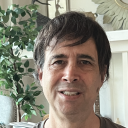This opinion piece is part of Propel Philanthropy’s Collaborative Media Campaign and a response to Rose Maruru’s article, Infrastructure is Invisible but Critical for Systems Change. To provide context, her organization, EPIC Africa, launched the African CSO Platform days ago and weeks after this article was published. My piece responds to this launch, and the interview conducted with Ms Maruru, with liberties taken to bring light to a different type of invisibility: How failing to invest in social impact infrastructure impacts countless lives.
To help make the invisible seen and heard, I’d like to share my experience in Niger in 2012. Upon visiting a patient, the hospital I saw looked nothing like the ones I’ve known living in the U.S. The surgery room had dark, stained cement walls and was probably built in the 1930s. This was where poor, local people went to get operated on, often without proper supplies, medication, or adequately trained doctors. Circumstances such as these draw together concerned citizens who form civil society organizations (CSOs) to solve such problems.
You can be certain that they will do what they can to ensure surgical knives are sterilized and that a sufficient supply of anaesthetics is on hand to make these procedures not so painful. But where can these citizens go to change such egregious conditions? They can’t just use their recently renewed Candid membership to track down likely funders. They can’t simply hop online to identify potential partners or retain a professional consultant. Most Africans don’t belong to philanthropy support organizations where they can enjoy the privilege of participating in valuable peer-to-peer learning and other circumstances where exposure to funders becomes possible.
I presented just one scenario. There are countless serious problems across Africa, with people experiencing real pain. And they take place every day across 54 countries on a continent with 1.2 billion people. And darn it, almost nobody wants to build the infrastructure we need to make things move a lot farther, a lot faster! As published on Propel Philanthropy’s homepage, “If you want a well-built house, you need a solid foundation. You also need plumbing, heating, and electricity.” If you want an Africa that will enable people to have at least a decent standard of life, those doing the hard, noble work need a way to connect to the grid! If they don’t have opportunities to learn from others, they will waste years discovering what is already well known.
Rose Maruru is the Co-Founder and CEO of EPIC-Africa. She and her team spent five years engaging 6000+ CSOs from 46 countries. And what these people told her does not differ much from what I wrote. They need partners. They need data. They need ways to publish articles that can be seen by others. And they most certainly need well-organized media dissemination channels because a lot happens on this continent that the rest of the world does not know about, and we should! As one woman shared, many need a way out of isolation.
Not only in Africa, but globally, we incur a tremendous waste because funders seeking to provide help cannot locate nonprofits or civil society organizations they can vet, or are vetted for them. And those seeking support cannot locate funders. Organizations creating positive social impact need training in fundraising, business development, technologies, building a presence on social media, and much more. If we fail to provide these resources to organizations, particularly in the Global South, millions of nonprofits and CSOs will continue operating far below their capacities. We will continue having too many operating rooms poorly equipped to treat patients. We will continue being poorly equipped to combat global warming and threats to democracy. We will not have the infrastructure needed to move a lot farther, a lot faster. Often in the Global North, people can just hop on to platforms such as Charity Navigator, GiveWell, and GivingCompass to vet nonprofits. We have a Candid to help double-digit thousands of foundations make informed decisions and help many more nonprofits raise money, find partners, and access critically valuable data. Imagine what the African CSO Platform could do in time to help millions of organizations spanning the continent of Africa move from half speed to full throttle ahead.
Peter Brach is the founder of Propel Philanthropy.






Comments (2)
Thank you for your thoughts, What you are bringing to light that is not in my article is your experiences from over ten years of direct experience working with international funders. You can bring testimony to the need for lack of awareness to local organization, proximity, concerns about corrupt use of funding.
Peter, I am right with you on your passionate call for more funders to invest in infrastructure organizations like EPIC-Africa that assess the needs of African civil society organizations and help make them visible to donors and funders at home and abroad. As someone who urges Americans to direct more funding to help solve global problems, I know that there can be several obstacles to giving overseas: 1) lack of awareness of local organizations 2) lack of proximity to see the work first-hand, and 3) concern about corrupt misuse of funds, in other words "mistrust." That's why those philanthropic dollars that do go overseas tend to go to big household names, the INGOs with big storytelling and advertising budgets, the ones donors assume they can trust. The infrastructure offered by EPIC-Africa is essential to bringing the vast array of effective African organizations up-close -- and to building trust with potential overseas funders, who themselves need to be trustworthy. Many thanks to Rose Maruru and her team at EPIC-Africa for enabling more funding for life-saving and life-enhancing work in Africa.